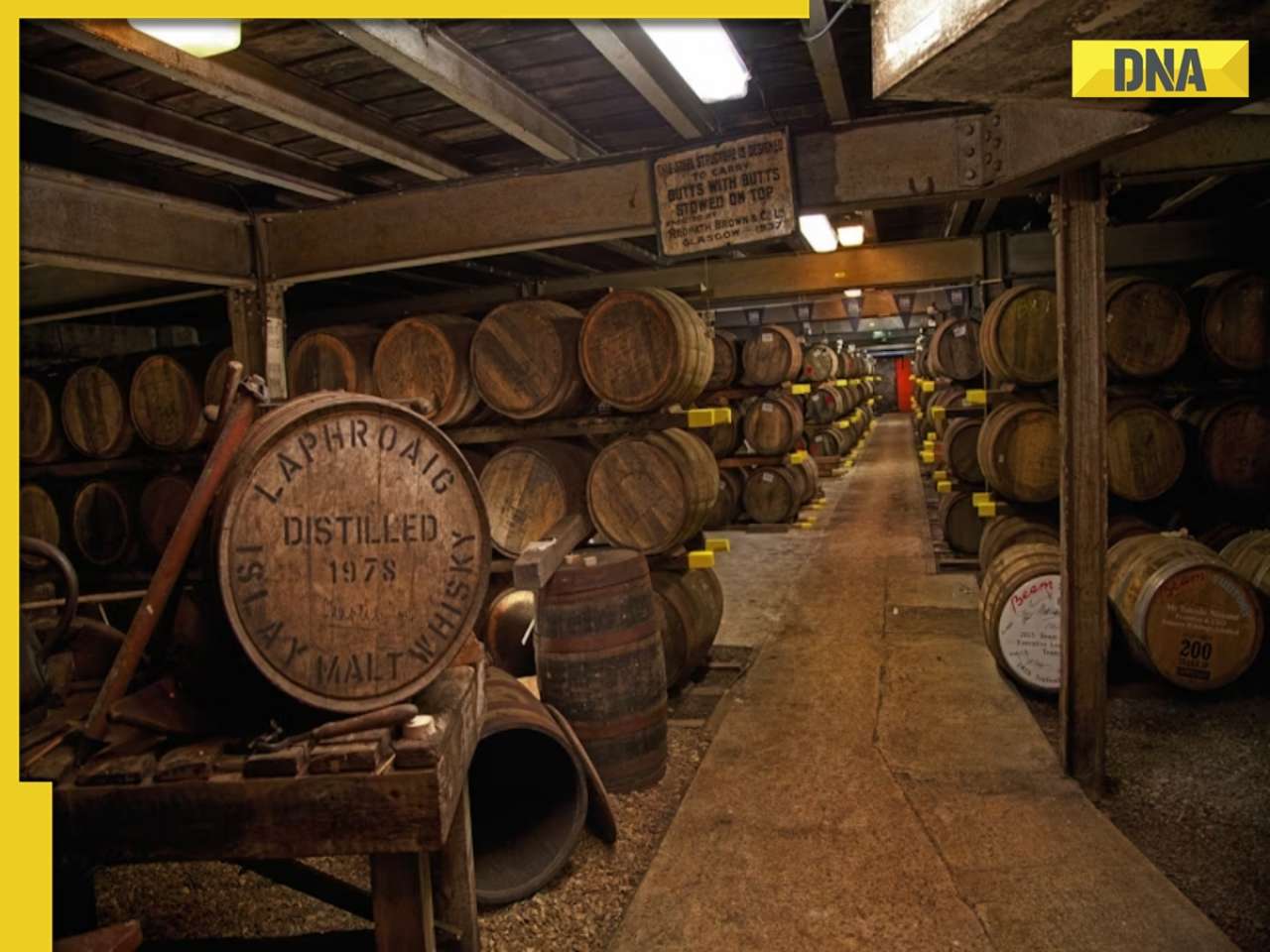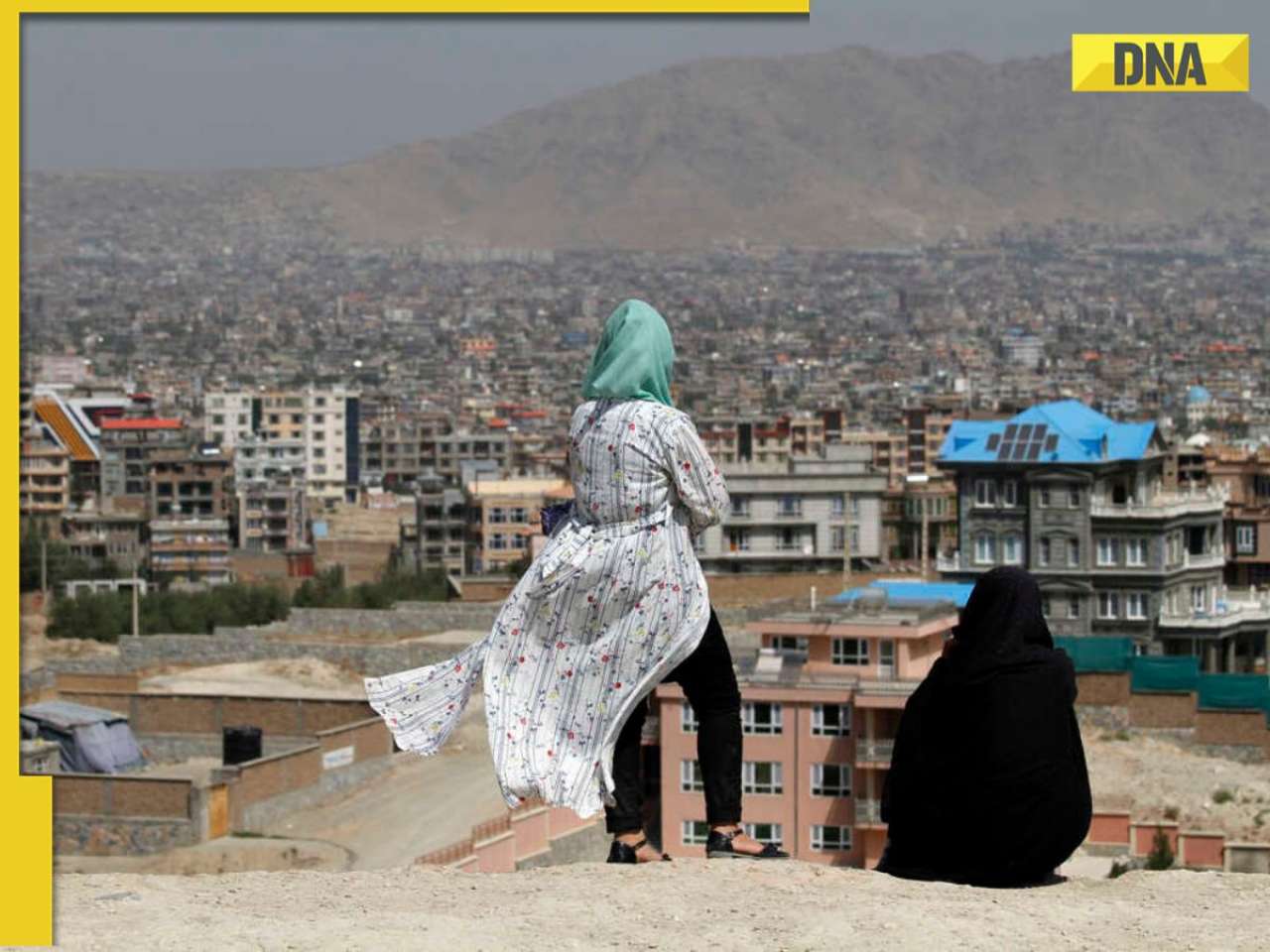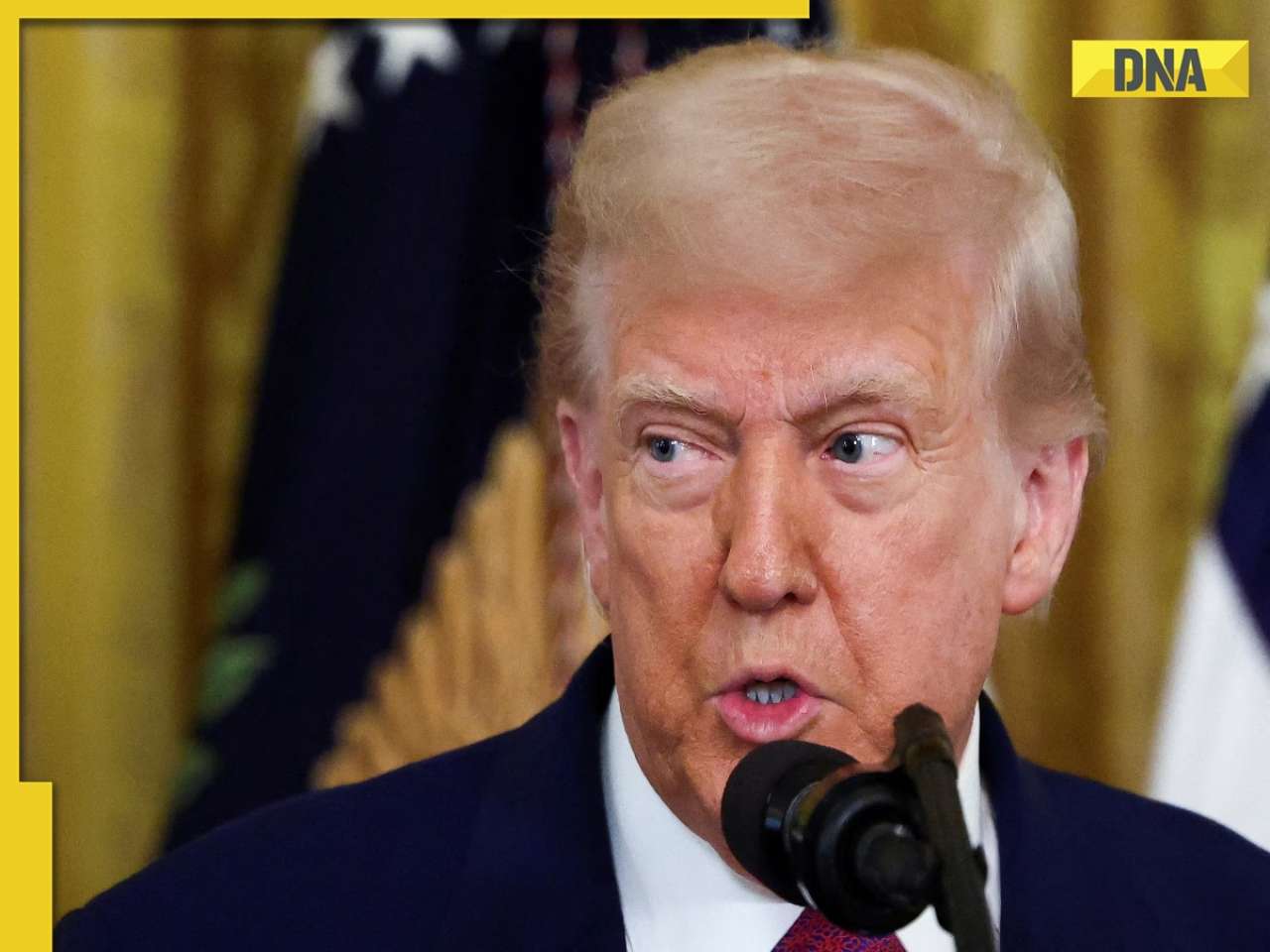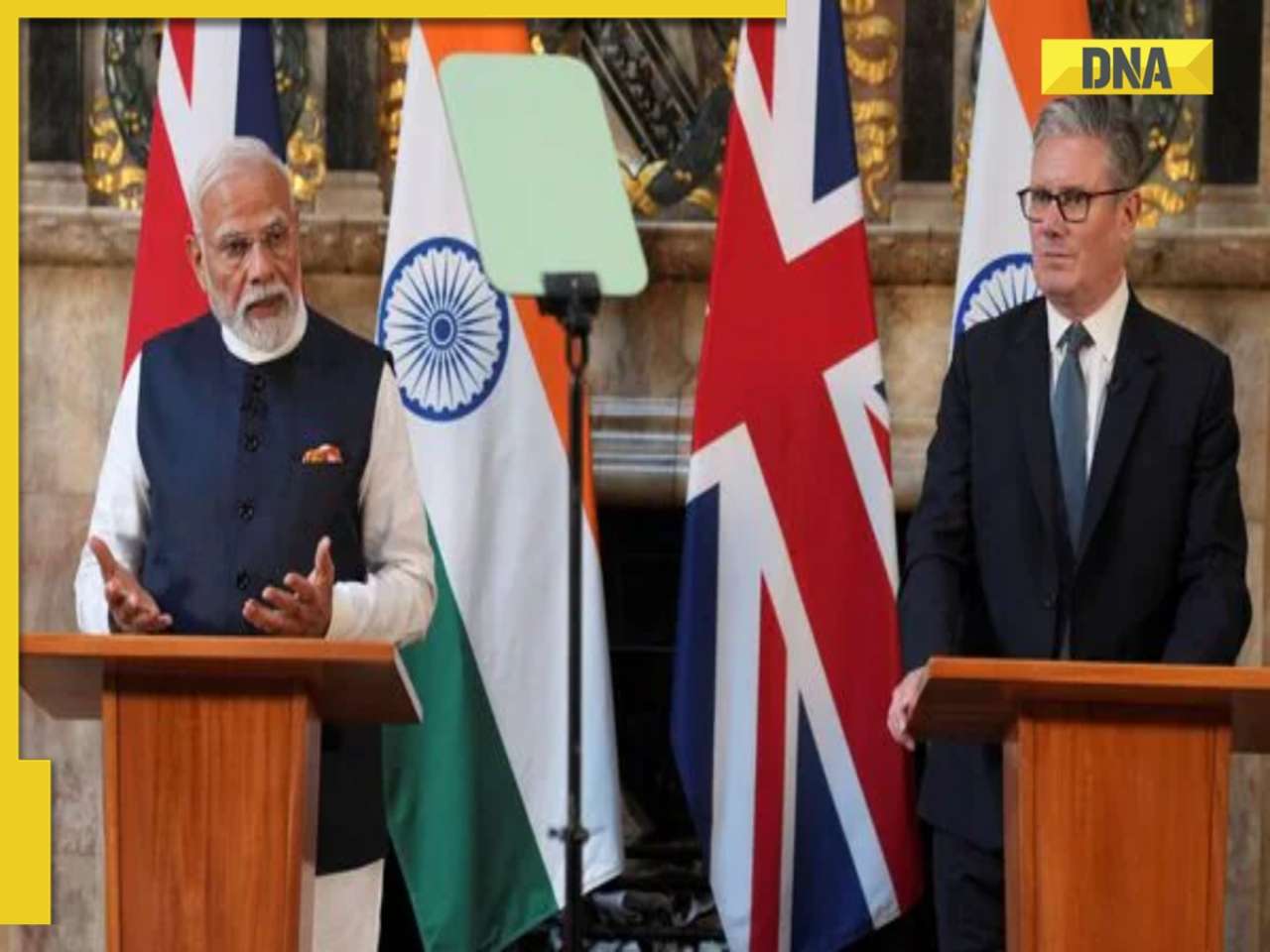The much-awaited landmark India-UK Free Trade Agreement was signed on Thursday, in the presence of Prime Ministers Narendra Modi and Keir Starmer, providing greater access to goods and services between the two countries.
Prime Minister Narendra Modi and UK PM Keir Starmer (Image credit: X/@narendramodi)
The much-awaited landmark India-UK Free Trade Agreement was signed on Thursday, in the presence of Prime Ministers Narendra Modi and Keir Starmer, providing greater access to goods and services between the two countries. "A landmark deal with India means jobs, investment, and growth here in the UK. It creates thousands of British jobs, unlocks new opportunities for businesses, and puts money in the pockets of working people. That's our Plan for Change in action," the UK PM wrote on 'X' ahead of the signing ceremony.
On May 6, Prime Minister Modi and his UK counterpart, Keir Starmer, announced the successful conclusion of a mutually beneficial India-UK Free Trade Agreement (FTA). This forward-looking Agreement is aligned with India's vision of Viksit Bharat 2047 and complements the growth aspirations of both countries. The idea behind the trade deal is to eliminate or reduce tariffs on imports and exports between the two nations. This should make Indian products competitive in the UK and vice versa.
Both nations desire to increase their trade to USD 120 billion by 2030. The FTA is expected to boost key sectors such as textiles, leather, footwear, sports goods and toys, marine products, gems and jewellery, engineering goods, auto parts and engines, and organic chemicals.
"The FTA ensures comprehensive market access for goods across all sectors, covering all of India's export interests. India will gain from tariff elimination on about 99% of the tariff lines covering almost 100 per cent of the trade value, offering huge opportunities for an increase in the bilateral trade between India and the UK," India's Commerce and Industry Ministry had said in its release on May 6.
What's cheaper? What's costlier?
As per an Aaj Tak report, electronics products, clothes, steel and metal, jewellery, and medicines might get cheaper. Moreover, agricultural products, cars, and bikes are likely to get costlier. Amid tariffs from the United States, India will not market its products in the UK at lower or zero tariffs.
In addition, the deal is likely to provide employment opportunities in India and the UK, with more focus on job creation and business.
With inputs from ANI
Find your daily dose of All
Latest News including
Sports News,
Entertainment News,
Lifestyle News, explainers & more. Stay updated, Stay informed-
Follow DNA on WhatsApp. Meet IPS officer, DU grad, who cracked UPSC exam in her third attempt, secured 992 out of 2025 marks with AIR..., now married to IAS...
Meet IPS officer, DU grad, who cracked UPSC exam in her third attempt, secured 992 out of 2025 marks with AIR..., now married to IAS... What is RM 70 Vampire MLRS? Used by Cambodia against Thailand, capable of firing 40 rockets in 20 secs, it is developed by...
What is RM 70 Vampire MLRS? Used by Cambodia against Thailand, capable of firing 40 rockets in 20 secs, it is developed by...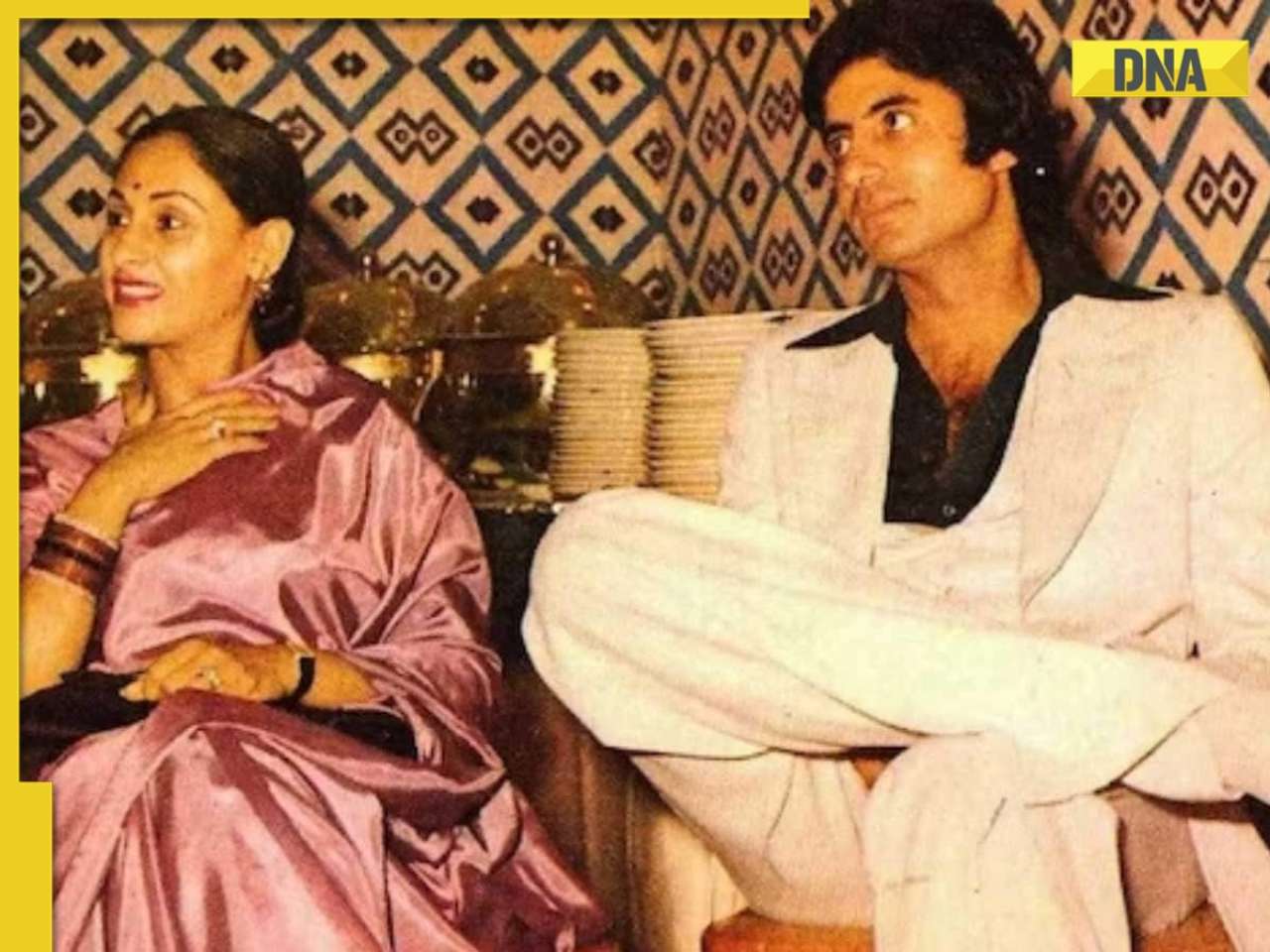 'Amitabh Bachchan was sitting jobless at home after 11 flops...': Javed Akhtar reminisces about pitching Zanjeer to Big B, says 'Jaya Bachchan never...'
'Amitabh Bachchan was sitting jobless at home after 11 flops...': Javed Akhtar reminisces about pitching Zanjeer to Big B, says 'Jaya Bachchan never...'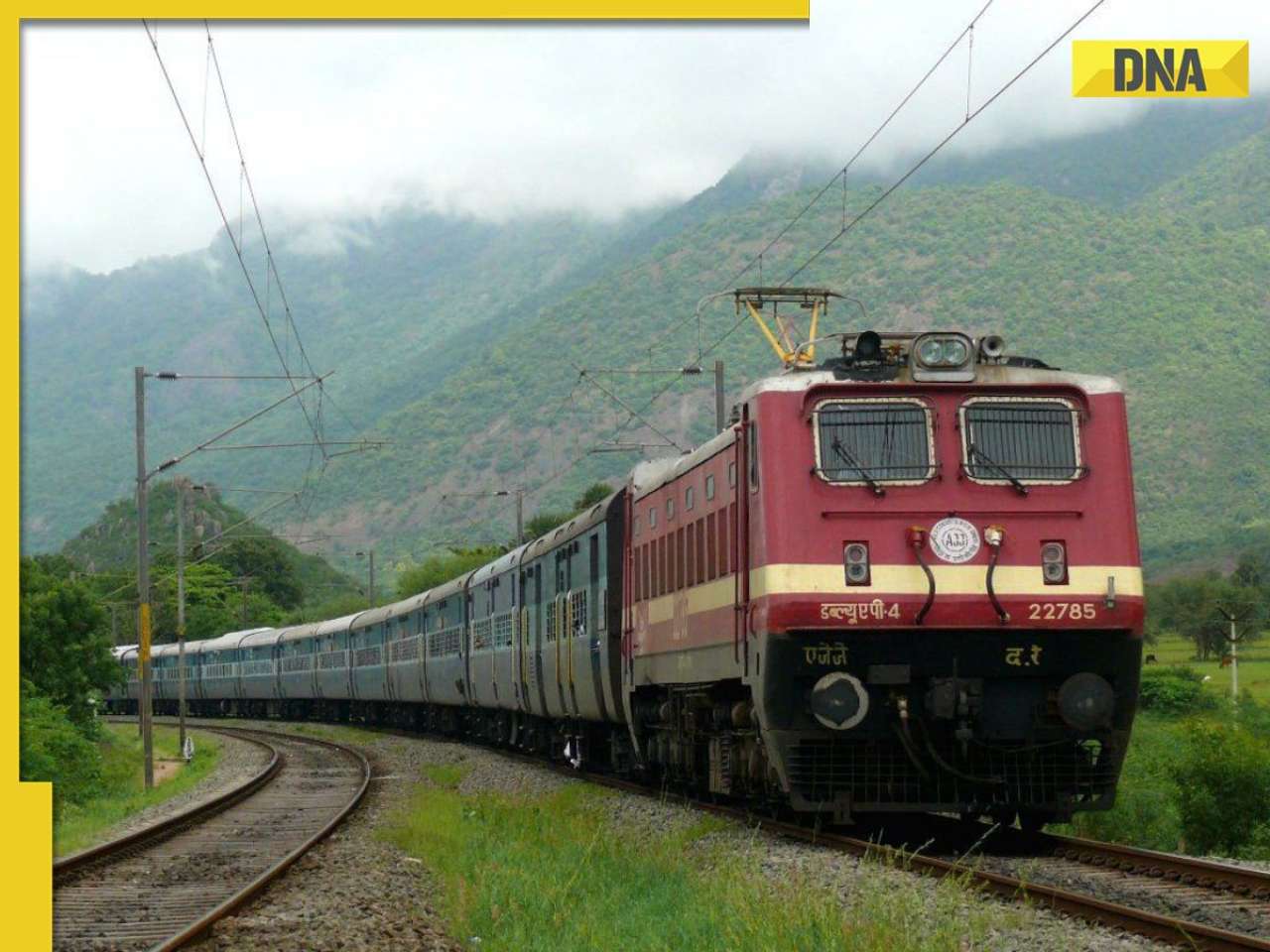 Good news for Railway passengers! Indian Railways rolls out new ticket booking rules for...
Good news for Railway passengers! Indian Railways rolls out new ticket booking rules for...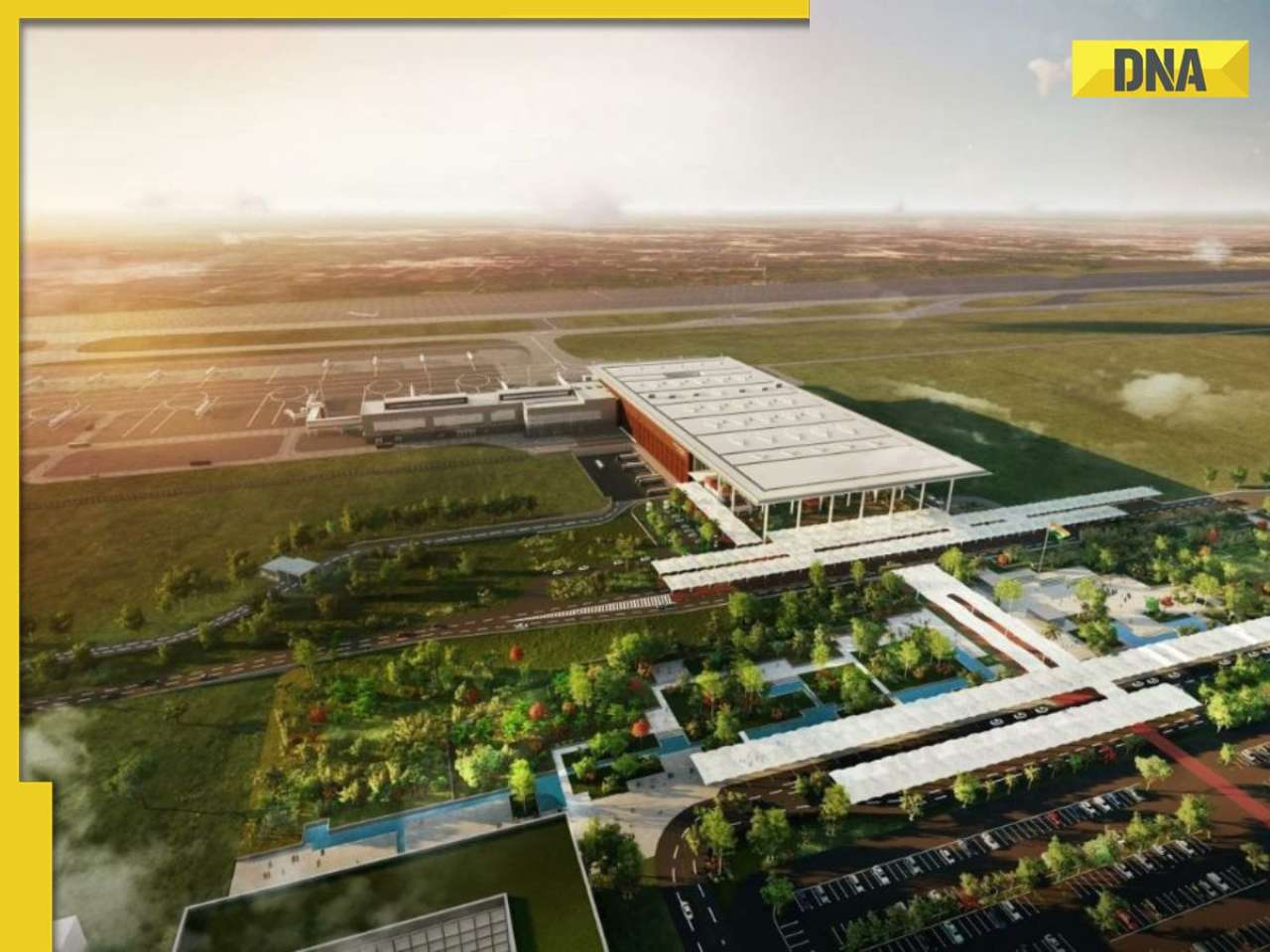 BIG Update on Noida's Jewar International Airport Expansion: 4600 families, 7 schools affected as government to acquire...
BIG Update on Noida's Jewar International Airport Expansion: 4600 families, 7 schools affected as government to acquire... Other than heart attacks or BP : 7 hidden heart conditions triggered by oily foods
Other than heart attacks or BP : 7 hidden heart conditions triggered by oily foods 7 most captivating space images captured by NASA you need to see
7 most captivating space images captured by NASA you need to see AI-remagined famous Bollywood father-son duos will leave you in splits
AI-remagined famous Bollywood father-son duos will leave you in splits 7 superfoods that boost hair growth naturally
7 superfoods that boost hair growth naturally Confused between Forex and Credit cards for your international trip? Learn which saves more
Confused between Forex and Credit cards for your international trip? Learn which saves more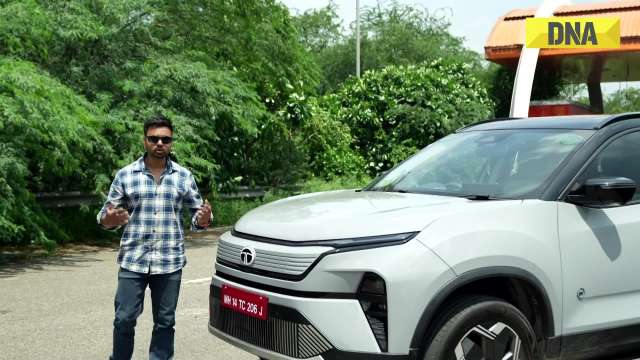 Tata Harrier EV Review | Most Advanced Electric SUV from Tata?
Tata Harrier EV Review | Most Advanced Electric SUV from Tata?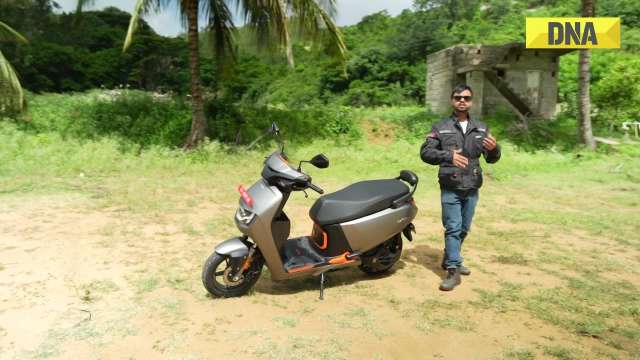 Vida VX2 Plus Electric Scooter Review: Range, Power & Real-World Ride Tested!
Vida VX2 Plus Electric Scooter Review: Range, Power & Real-World Ride Tested!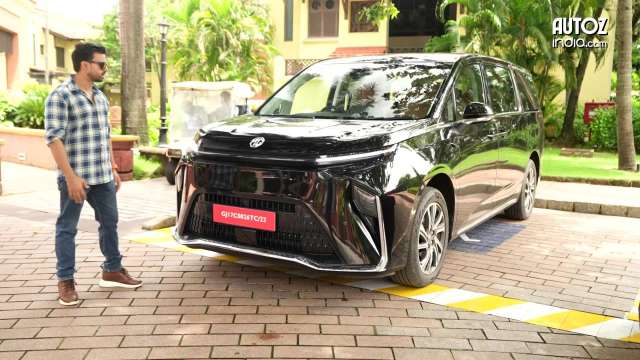 MG M9 Electric Review | Luxury EV with Jet-Style Rear Seats! Pros & Cons
MG M9 Electric Review | Luxury EV with Jet-Style Rear Seats! Pros & Cons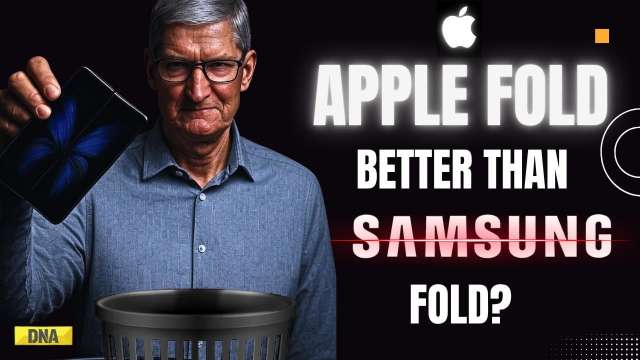 Iphone Fold: Apple’s iPhone Fold Could Solve Samsung’s Biggest Foldable Problem | Samsung Z Fold 7
Iphone Fold: Apple’s iPhone Fold Could Solve Samsung’s Biggest Foldable Problem | Samsung Z Fold 7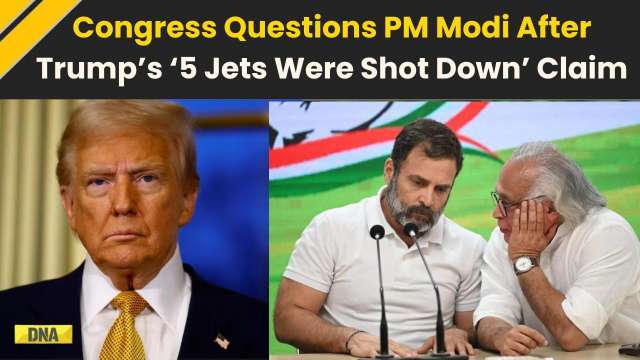 Trump News: Congress Seeks Answers On Trump's Alleged Mediation In Operation Sindoor
Trump News: Congress Seeks Answers On Trump's Alleged Mediation In Operation Sindoor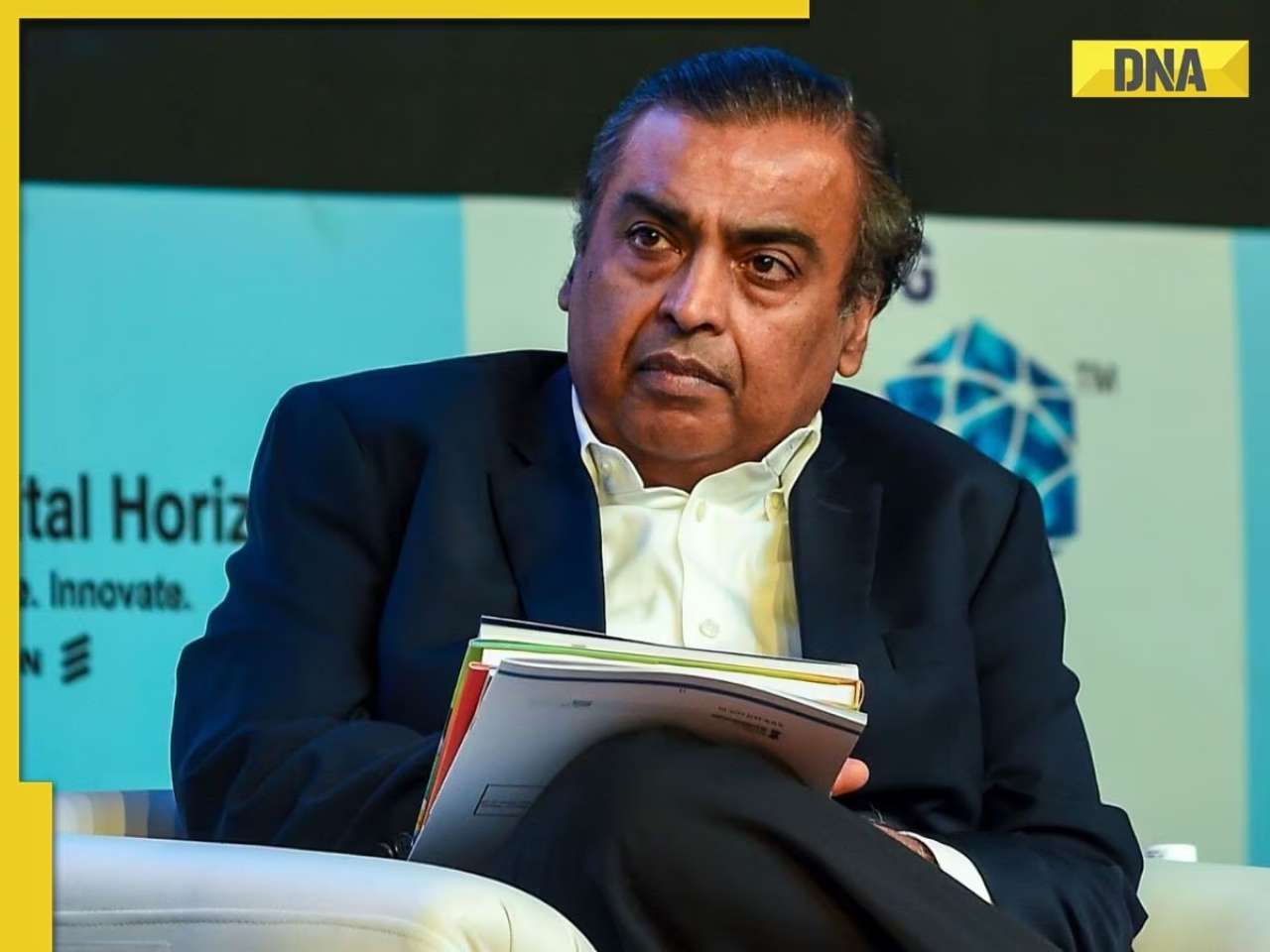 This man becomes world's highest-earning billionaire in 2025, beats Elon Musk and Jeff Bezos, Mukesh Ambani is at...
This man becomes world's highest-earning billionaire in 2025, beats Elon Musk and Jeff Bezos, Mukesh Ambani is at... Meet man who built Rs 200,000,000 empire after two failed ventures, his business is..., net worth is Rs...
Meet man who built Rs 200,000,000 empire after two failed ventures, his business is..., net worth is Rs... Meet man, founder of app under govt lens, also owns Rs 1000000000 business, he is..., his educational qualification is...
Meet man, founder of app under govt lens, also owns Rs 1000000000 business, he is..., his educational qualification is...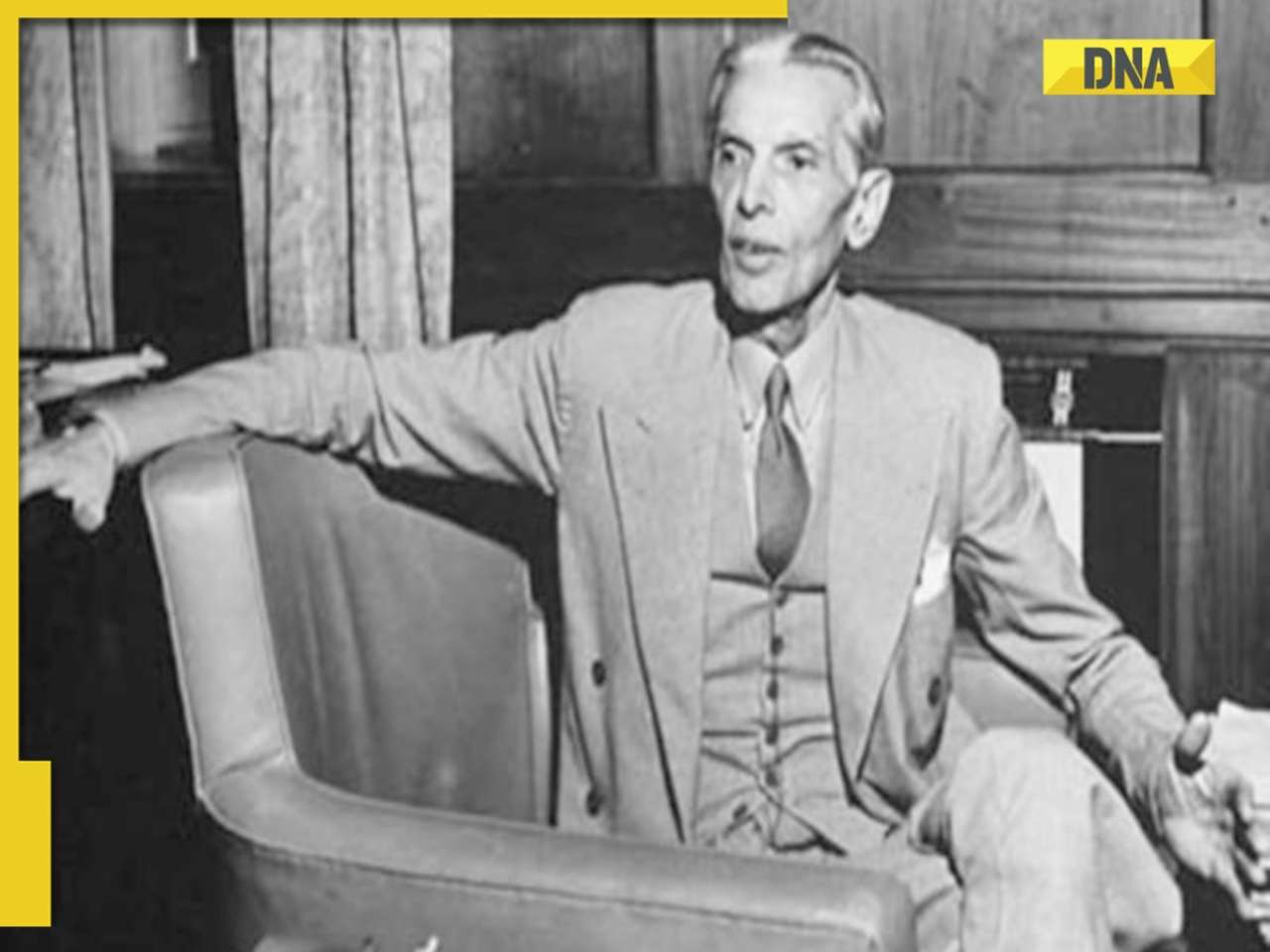 Jinnah wanted THIS Muslim man to be first Finance Minister of Pakistan, he refused, his son is on Forbes list of billionaires
Jinnah wanted THIS Muslim man to be first Finance Minister of Pakistan, he refused, his son is on Forbes list of billionaires After India-UK FTA, New Delhi to begin talks with THIS country, because...
After India-UK FTA, New Delhi to begin talks with THIS country, because... Twinkle Khanna to Sushmita Sen: 5 Bollywood women who are redefining success on their own terms
Twinkle Khanna to Sushmita Sen: 5 Bollywood women who are redefining success on their own terms From 20th Century Girl to Be With You: 5 K-romantic films you must stream now
From 20th Century Girl to Be With You: 5 K-romantic films you must stream now Ananya Panday to Shanaya Kapoor: Ethnic outfit inspo you’ll want this Raksha Bandhan
Ananya Panday to Shanaya Kapoor: Ethnic outfit inspo you’ll want this Raksha Bandhan If you enjoyed Aap Jaisa Koi, don’t miss these 5 romantic R Madhavan movies on OTT
If you enjoyed Aap Jaisa Koi, don’t miss these 5 romantic R Madhavan movies on OTT New love in B-Town? 6 actor pairings stirring up dating rumours
New love in B-Town? 6 actor pairings stirring up dating rumours Good news for Railway passengers! Indian Railways rolls out new ticket booking rules for...
Good news for Railway passengers! Indian Railways rolls out new ticket booking rules for... BIG Update on Noida's Jewar International Airport Expansion: 4600 families, 7 schools affected as government to acquire...
BIG Update on Noida's Jewar International Airport Expansion: 4600 families, 7 schools affected as government to acquire... Kargil War Diwas: What is Operation Safed Sagar? When India dominated Pakistan with its air power during Kargil War on May 26
Kargil War Diwas: What is Operation Safed Sagar? When India dominated Pakistan with its air power during Kargil War on May 26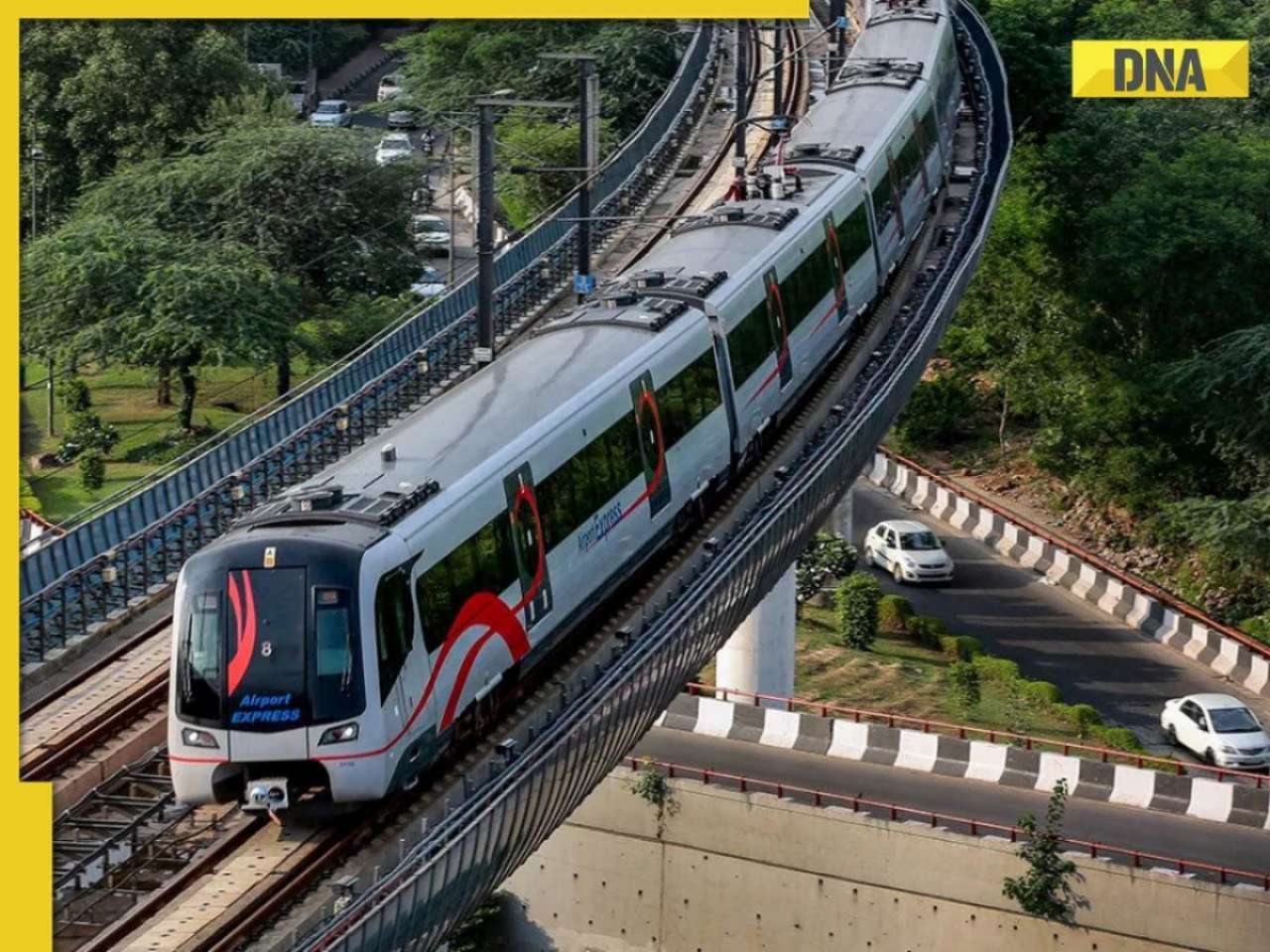 Big Boost for Ghaziabad: DMRC plans 4 metro corridors, Gokulpuri-Hindon Airport link proposed
Big Boost for Ghaziabad: DMRC plans 4 metro corridors, Gokulpuri-Hindon Airport link proposed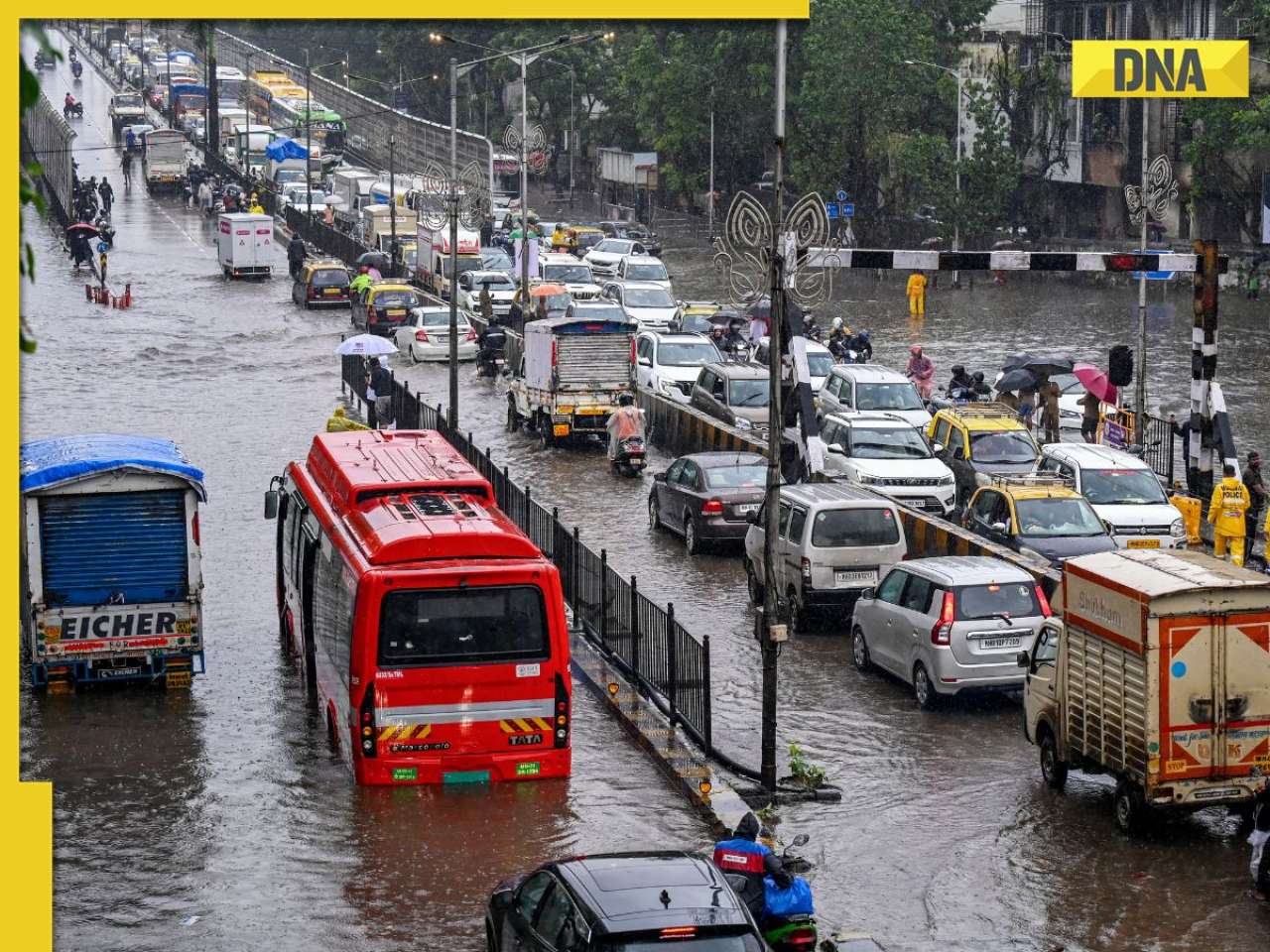 Maharashtra monsoon: IMD issues red alert in six districts, traffic chaos in Mumbai amid heavy rain; school, colleges shut in...
Maharashtra monsoon: IMD issues red alert in six districts, traffic chaos in Mumbai amid heavy rain; school, colleges shut in... Meet IPS officer, DU grad, who cracked UPSC exam in her third attempt, secured 992 out of 2025 marks with AIR..., now married to IAS...
Meet IPS officer, DU grad, who cracked UPSC exam in her third attempt, secured 992 out of 2025 marks with AIR..., now married to IAS... Meet woman, who studied MBBS, later cracked UPSC with AIR..., became popular IAS officer for these reasons, shares similarities with IAS Tina Dabi, she is from...
Meet woman, who studied MBBS, later cracked UPSC with AIR..., became popular IAS officer for these reasons, shares similarities with IAS Tina Dabi, she is from... Meet Nilufa Yasmine, who topped UGC NET June exam, failed twice before scoring a perfect 100, she is from...
Meet Nilufa Yasmine, who topped UGC NET June exam, failed twice before scoring a perfect 100, she is from... Meet woman, daughter of vegetable vendor who cracked UPSC, her mother mortgaged gold for her education, her AIR is…
Meet woman, daughter of vegetable vendor who cracked UPSC, her mother mortgaged gold for her education, her AIR is… Meet woman, who cracked IIT with full-time job, secured impressive AIR of...; now works at Bill Gates' Microsoft as...
Meet woman, who cracked IIT with full-time job, secured impressive AIR of...; now works at Bill Gates' Microsoft as...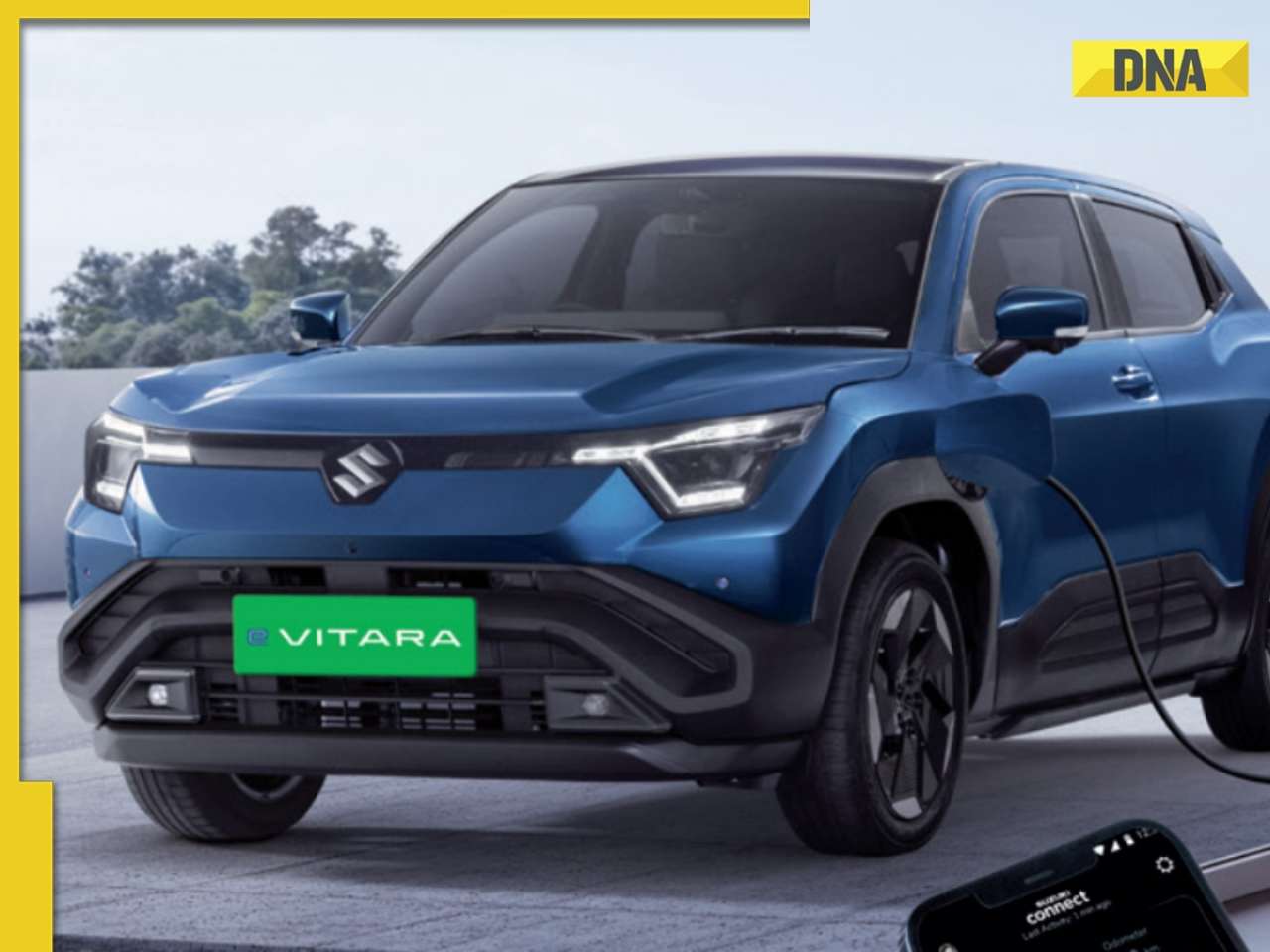 Maruti Suzuki's e Vitara set to debut electric market at Rs..., with range of over 500 km, to launch on...
Maruti Suzuki's e Vitara set to debut electric market at Rs..., with range of over 500 km, to launch on...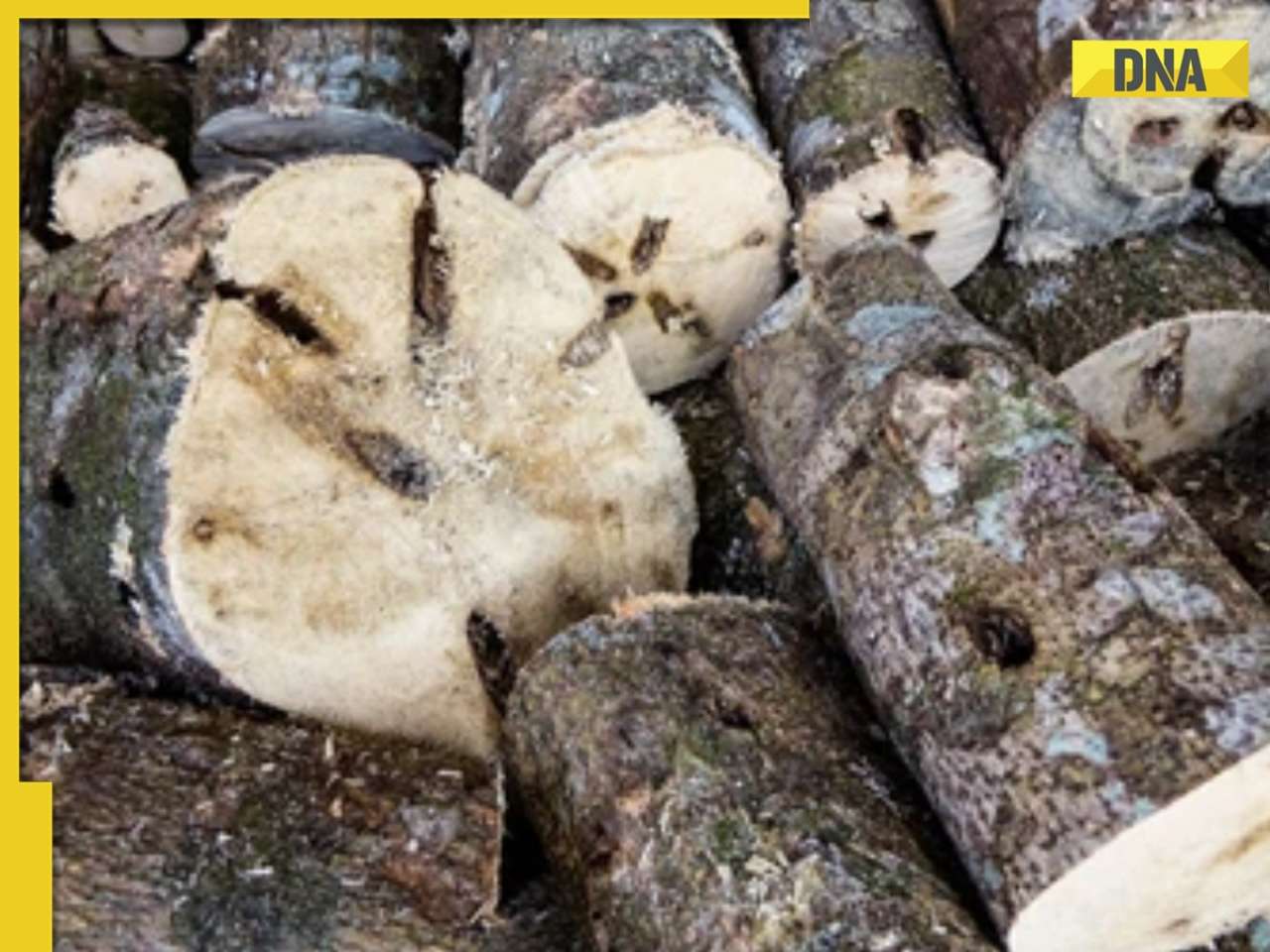 This is world’s most expensive wood, cost of 1kg wood is more than gold, its name is..., is found in...
This is world’s most expensive wood, cost of 1kg wood is more than gold, its name is..., is found in... This luxury car is first choice of Indians, even left BMW, Jaguar, Audi behind in sales, it is...
This luxury car is first choice of Indians, even left BMW, Jaguar, Audi behind in sales, it is... Kia India unveils Carens Clavis: Check features, design changes, price and more; bookings open on...
Kia India unveils Carens Clavis: Check features, design changes, price and more; bookings open on... Tesla CEO Elon Musk launches most affordable Cybertruck, but it costs Rs 830000 more than older version, it is worth Rs...
Tesla CEO Elon Musk launches most affordable Cybertruck, but it costs Rs 830000 more than older version, it is worth Rs...







)
)
)
)
)
)
)
)
)
)
)
)
)
)
)
)
